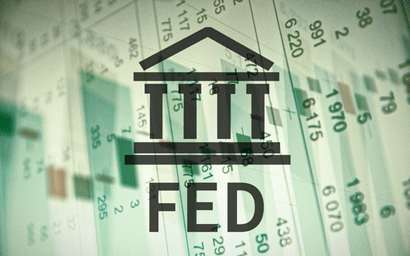Fund management firms reacted with surprise to the suggestion that US interest rates will rise three more times next year – and some argue it signals a return to normalisation of economic policy.
Yesterday saw the second US rate rise in a decade when the Federal Open Market Committee (FOMC) moved interest rates upwards by 0.25%.
Ken Taubes, head of US investment management at Pioneer Investments, said: “What surprised markets is that the FOMC projected three rather than two rate hikes of 0.25% in 2017.”
Daniela Russell, a portfolio construction associate at Legal & General Investment Management, said: “The Fed has increased interest rates once again in line with expectations, but has surprised by signalling that it now envisages hiking rates a further three times next year, rather than the earlier forecast of two.”
Nicholas Wall, a bond portfolio manager at Old Mutual Global Investors, said the Fed did not meaningfully change its economic projections, but did point to “considerably” higher market-based inflation expectations and a strengthening jobs market as the main reasons behind the move.
Donald Trump’s pro-business economic policies were also a push factor. Richard Clarida, Pimco’s global strategic adviser, noted that four members of the FOMC appeared “willing to place at least a modest bet that Trumponomics” will justify three hikes instead of two in 2017.
However, Pioneer’s Taubes noted that Janet Yellen, Fed chair, emphasised in her press conference that “considerable uncertainty” surrounded the effects of these policies, which include more spending on infrastructure and defence, and more deregulation.
Several commentators effectively see the era of emergency stimulus represented mostly by quantitative easing as coming to and end.
Thanos Bardas, a fixed income investor at Neuberger Berman, said central banks have been “dialing back” on stimulus since the summer with the European Central Bank discussing tapering and the Bank of Japan (BoJ) abandoning aggressive negative rates in September.
“At the same time, governments appear to be moving toward greater fiscal stimulus in support of economies. Both trends imply a realisation that ‘exotic’ monetary policy, while effective up to a point, has meaningful shortcomings.”
Rick Rieder, chief investment officer of fundamental fixed income at BlackRock, said: “In fact, we would identify September 21 as just as critical a date [as yesterday] of policy regime change, as on that day the Bank of Japan unexpectedly announced a shift away from its emphasis on negative policy rates and instead put forward a significant policy adjustment and plans to overshoot its 2% inflation target in an intentional manner.”
Rieder added that “excessive pessimism is overdone” and there is “greater optimism that a more productive balance between growing fiscal and receding monetary policy stimulus” could be found.
“In the end, we think central banks are now heading down more appropriate policy paths, and markets will continue to respond accordingly.”
©2016 funds europe





